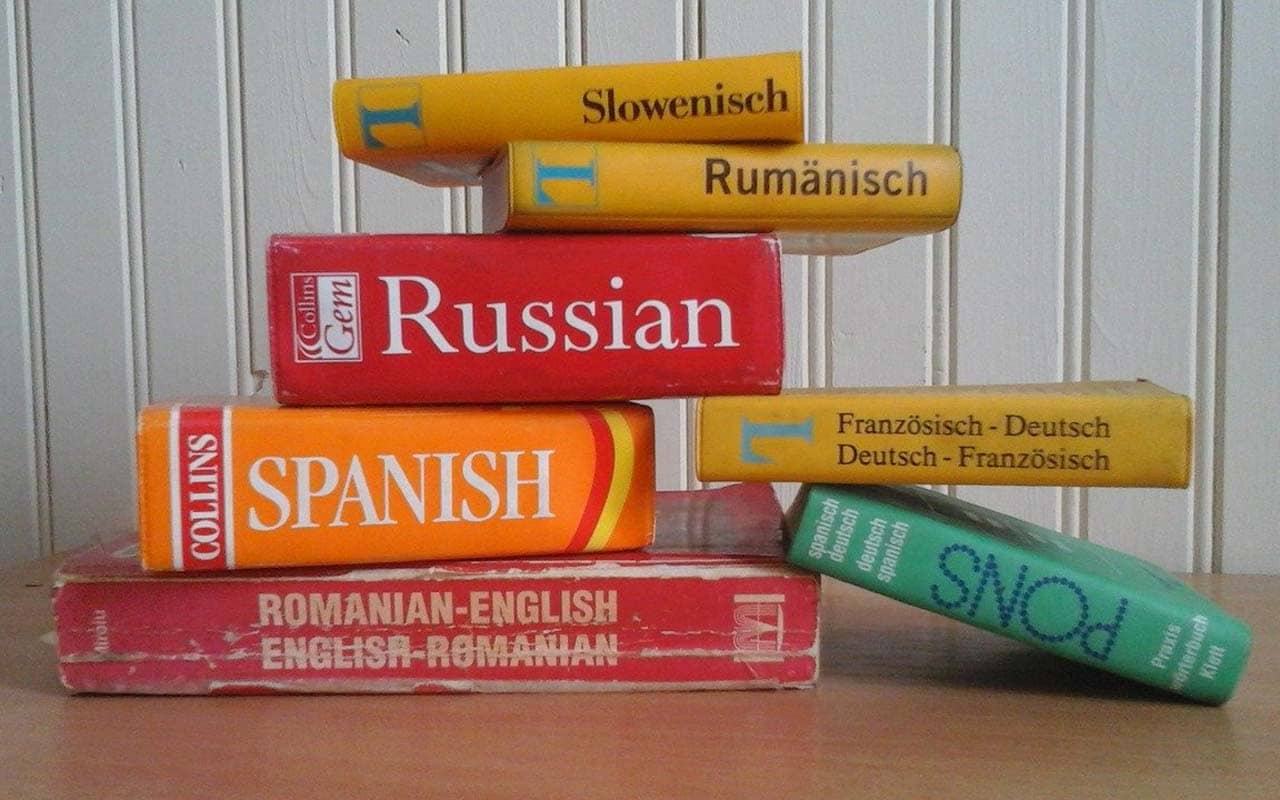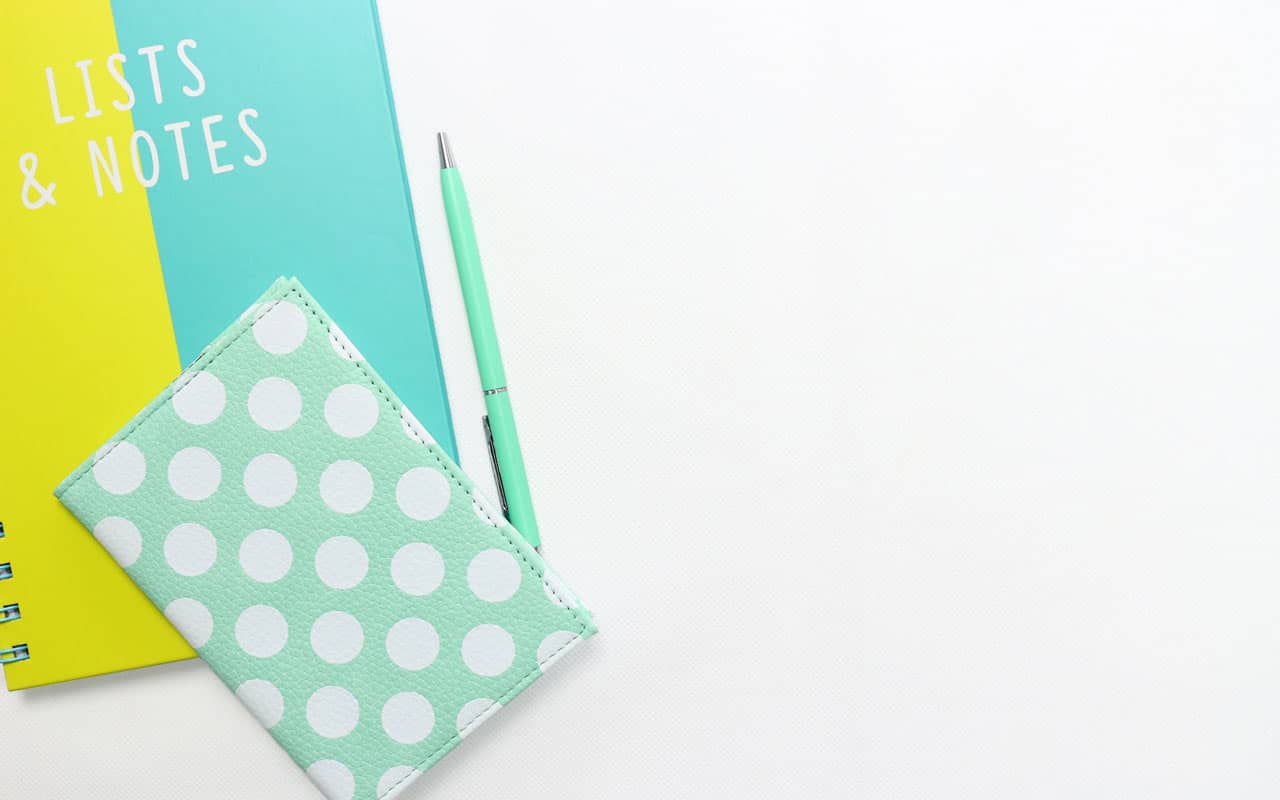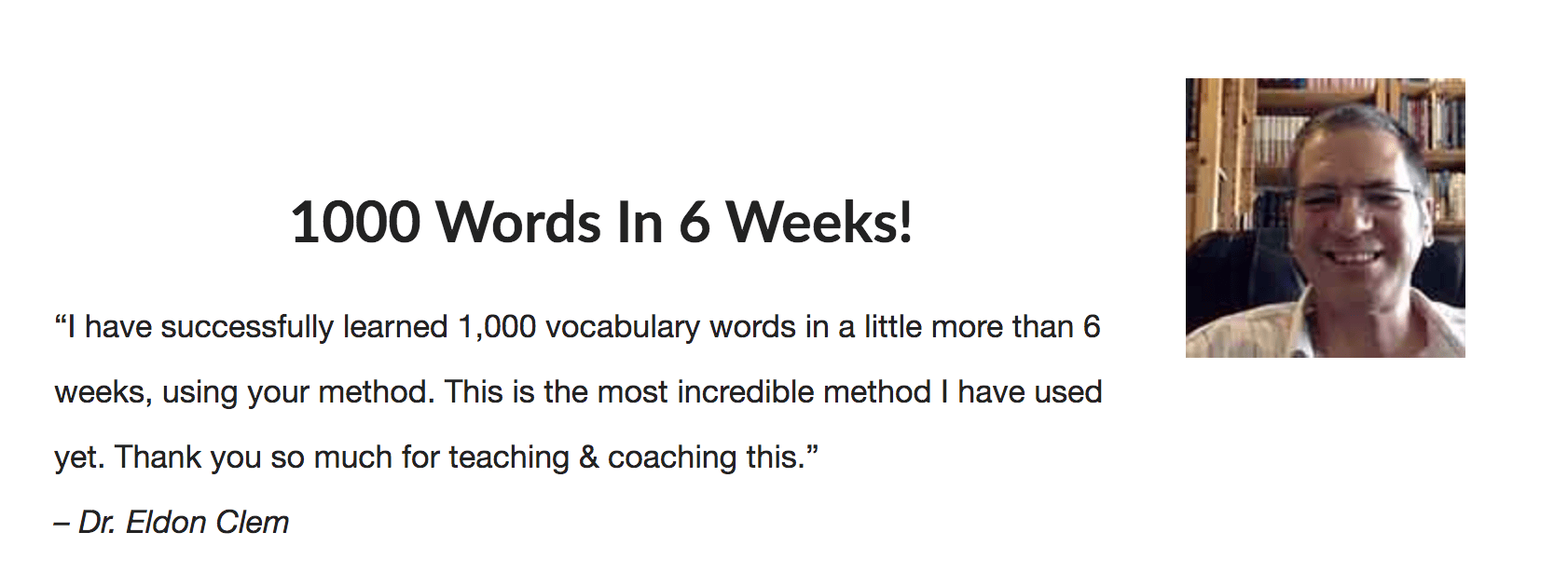 Want to master multiple languages and become a polyglot?
Want to master multiple languages and become a polyglot?
Good news:
Anyone can do it.
In fact, everyone should. It’s great for more than just your social life. Speaking multiple languages has also been shown to guard your brain health.
¿Listo para ir? Bereit zu gehen? Готов идти?
(Ready to go?)
If you can’t read and understand that one question in more than three languages, you’re in the right place.
As a PhD in Humanities from York University, I’ve needed to deal with a number of languages across my career.
And that’s just one reason why understanding what polyglots do and how they do it to learn multiple languages has been so useful to me at a professional level.
It’s also been personally useful because I love understanding art, literature and even politics better by listening to and reading books from around the world. If being able to do that yourself sounds good…
Here’s what this post will cover:
What Is A Polyglot?
How to Be a Polyglot: 11 Proven Tips
Get Your Polyglot Tips From Humble Language Learners
But before we dive into a step-by-step tutorial on becoming a polyglot, let’s make sure we have the best possible definition in hand.
What Is A Polyglot?
The dictionary isn’t very clear on this point. It simply say that a polyglot has the ability to write or speak several languages.
Notice the “or” in this definition. It’s important because I’ve been to many language learning conferences, such as the Polyglot Gathering in Berlin. There, I’ve met many people who could read and write in languages, but barely speak a word.
Are they really polyglots?
Well, according to my friend and world-famous omniglot Luca Lampariello, the answer is…
It depends.
As Luca points out, quoting me in the process, you’re the one who has to define why you’re learning languages and how you want to be evaluated.
Lots of people are going to have opinions about your abilities in the languages you claim to have fluency in, so be ready to explain yourself and your motives.
When answering questions around what is a polyglot, one of my favorite points comes from Kerstin Hammes (now Kerstin Cable).
She points out that language learners come across many egotistical people who are essentially showing off. It’s wise not to belong to that crowd because we all know that pride leads so many to fall flat on their faces.
I prefer polyglots like Olly Richards, Benny Lewis and David Mansaray who share the real behind-the-scenes journeys involved in learning languages.
For example, I once saw Benny speak Esperanto and was totally blown away — twice. First, he impressed me by how well he spoke in front of a large audience. I was blown away the second time by some of the negative chatter from some of the language learning snobs at the convention.
The reality is… a lot of those snobs were the people who had bragged that they could read and write in a bunch of languages but actually couldn’t speak any of them.
Frankly, I think it’s cool if you can only read and write a language, but bragging most certainly isn’t.
The point I’m making is that no one “owns” the definition of what makes a polyglot. You’ll find all kinds of different definitions:
- You have to speak 2 more languages than your mother tongue
- You have to speak 3 more languages than your mother tongue
- You have to read, write, and speak 4 more languages than your mother tongue
- Etc.
Then people get into evaluation battles. Evaluation is important and something I talk about in How to Become Fluent in a Language.
In sum, you get to decide what being a polyglot means, and just need to be aware that others will judge you no matter which definition you come up with.
It’s a good policy to make sure you only hang out with people who support your language learning goals, no matter how many languages you’re learning.
Now, with the problem of defining multilingualism covered, let’s dive into some language learning strategies.
How to Be a Polyglot: 11 Proven Tips
How do you become a polyglot? You start at the beginning.
Tip One: Master One Language First
I realize that you want a bunch of exciting tips about learning more than one language at the same time. You actually can do that, and I’ll share some pointers a bit later.
But in actual reality, nearly every polyglot I know strongly suggests that you learn one language at a time.
Why?
Let me introduce you to a wise old saying:
The hunter that chases two rabbits rarely catches either.
In the case of language learning, one language has thousands of rabbits all on its own!
There’s another reason to get one language mastered first:
You’ll develop meta-learning skills. These will help you discover a lot about how to learn. And for more on that, let’s proceed.
Tip Two: Learn How To Learn
It sounds easy enough, right? Just spend enough time exposing yourself to information and knowledge will flow into your memory on autopilot.
Well… maybe. But usually not.
Instead, there are many accelerated learning techniques you should learn. These include:
- Scheduling your time
- Mnemonic devices
- Mnemonic strategies
- Mind mapping for language learning
- Interleaving
- Working with speaking partners, including in tandem with language learning software
Every polyglot I know is also a master of learning how to learn.
Tip Three: Limit Your Resources
So many people overwhelm themselves with too many language learning materials. They’re also overwhelmed by doubt about the “best” learning materials and that only adds to the anxiety.
The best thing is to follow the advice of my friend Olly Richards. He helped me immensely when he suggested limiting my learning materials for each language to just:
- One textbook
- One audio or video program
- One teacher
By working fully through each of this limited set of resources, it’s easy to get ahead. That’s because you’re not constantly interrupting yourself with every new book or course you see on the market.
Of course, this advice doesn’t mean you stop with just three resources. Instead, you complete what you started with before moving on to the next resource.
In language learning, it just takes a bit of research to find the right resources, and also a bit of tolerance for risk. You will get some resources that just aren’t a fit.
It’s a good idea to make sure the book or course has a refund policy, but not as an excuse for not taking action. It’s just a reality that sometimes some materials aren’t a fit. Use your best judgment.
Tip Four: Don’t Always Learn Words In Context
A lot of language learning “gurus” tell you to always learn words in the context of phrases and conversations.
Let me tell you straight up: this is patent nonsense. Anyone who throws the word “always” around should be promptly forgiven and corrected.
The truth is that there are tons of words you not only need to memorize individually — but when you have memory techniques, you can memorize them quickly because you treat them individually.
Pronouns in many of their categories are just one case in point amongst many. Others include:
- The days of the week or months of the year
- Numbers
- Colors
- Objects
- Directions
- Many adjectives
And if you are learning more than one language at a time and use the Memory Palace technique to help speed up the process, you can explore reusing established Memory Palaces.
In this way, you can “compound” these individual words from other languages on top of or beside your first collection.
Tip Five: Strategically Learn In Context
Without contradicting myself, you absolutely should use every word and phrase you memorize in context. If you’re really learning the language, you’ll do this anyway.
A cool way to make sure you can do this quickly is to:
- Memorize ten words in a Memory Palace
- Go back and add a phrase to each
- Write all of them from memory to practice active recall
- Meet your speaking partner and produce them from memory in your conversation
You can also memorize entire dialogues, and this circles back to the key point that learning how to memorize individual words first is a key strategy.
That way, you will be able to memorize entire phrases and from there commit entire dialogues to memory.
You also want to consider context at large. As this study found, some learners were better able to read and speak a second language by traveling to a country where the language is spoken. This likely has to do with context-dependent memory effects.
I’ve seen this work both ways. The first time I lived in Germany, the context didn’t help much. It was only when I had to learn enough German to lecture in the language that the context started to boost my memory for that language. Otherwise, it was perfectly fine to study it at home.
Tip Six: Separate Gathering Words And Phrases From Learning Them
Remember when I said that you will learn meta-skills when learning a language? One of them is knowing how to divide or batch tasks.
Now, a lot of people hope, wish, and pray for a “magic list of words” that will make them fluent if they just commit them to memory. Or maybe just one more Anki deck will do the trick.
A lot of lists do exist and they can be helpful.
But the reality is that you need to self-monitor. You need to speak to yourself in your language every day and keep track of your blindspots. Then, you need to figure out how to say those things you don’t know how to say yet and memorize them.
In other words, you need to build your own list.
As you practice this, I suggest you split your time between these activities in phases:
- Gathering core vocabulary and phrases from your strategically limited sets of language resources (15 minutes)
- Commit what you’ve gathered to memory (15-20 minutes)
- Practice active recall in writing (15-20 minutes)
- Practice active recall while speaking (15-20)
There’s no perfect way to organize these phases. Just do your best to batch the tasks so you can focus on each. You’ll find that this wheel of activity starts to flow quite smoothly as you practice.
Then, when you add your second, third, and fourth languages as you’re becoming multilingual, you’ll find the round helps you learn very fast.
Tip Seven: Spend Lots of Time with Native Speakers
This tip is a bit of a no brainer, and depending on your definition of “polyglot” it might be optional. After all, if you only want to read in a language, speaking might not apply to you.
That said, it’s still advisable to speak with yourself in your head (I do this with Sanskrit, for example, and used to do it with Biblical Hebrew).
Normally, however, you’ll want ample time with others. To do this, here are some suggestions:
- Book multiple sessions with a language teacher in advance. Really fill your calendar so you have no excuses. If your teacher is also a polyglot, all the better.
- Find people in your community who speak the languages you want to learn. Bring magazines and just point to pictures so you can ask questions about them in the target languages.
- Speak to yourself. Even though you’re not a native speaker, this will help.
To take one example of someone who spoke the language mentally, let me introduce you to Eldon Clem:
Eldon was already an accomplished polyglot, but when he took up ancient Ethiopic, he needed extra help and the Magnetic Memory Method Masterclass gave him the boost he needed.
I remember chatting with him at the time and was delighted by how he used a mental conversational process to help the words and phrases stick.
Tip Eight: Read a TON
Let’s stick with Eldon for a moment. Do you see how he memorized 1000 words in just 6 weeks using the Magnetic Memory Method?
Well, there’s a reason he chose that number.
He has a system (just like I suggest you develop for yourself). In Eldon’s system, he develops a 1000 word vocabulary and then proceeds to read 1000 pages in the language he’s learning.
It’s not really as many pages as it seems — it’s only about 5 novels worth. Chances are you can pick up that many words and read that many books within 3 months if you apply yourself. It’s all about using the right learning techniques and scheduling your time.
Now, some people suggest that you read books in your target languages you’ve already read in your mother tongue. This is not a bad suggestion.
I personally find this quite boring, however. It’s much more exciting to read content that is new to me and then use the power of guessing to help with acquiring the language.
Since there are many graded readers available for many languages, I suggest trying both paths, but favoring uniqueness and originality for the additional stimulus it brings through curiosity and piquing your imagination.
Tip Nine: Know The Different Kinds of Motivation
Motivation is a big topic, and there is a lot you can gain by understanding the differences between intrinsic and extrinsic motivation. Study them well and make sure you can manage your progress with the kinds of rewards you need.
Also, be a student of which times you perform best as a learner. All kinds of whacky advice and even decent science out there can be misleading.
It actually doesn’t matter what this or that study says: some people learn better after a cold shower in the evening, and others do better in the mornings. There are many patterns and these can shift during the course of a lifetime.
Both Aristotle and Thomas Aquinas were clear in their old books on memory training that each student must become an expert in their own psychology. You need to do that too.
Tip Ten: Learn Grammar As You Go
A lot of people focus intensely on grammar. The effort generally isn’t necessary — unless you want to be an expert in grammar. If so, here’s a detailed tutorial on how to memorize grammar rules.
In reality, most native speakers haven’t got a clue about how grammar works in their mother tongue. And that’s because no one has to know it, in the same way you don’t need to know the names of your muscles and bones in order to walk.
To be clear, I’m not suggesting you shouldn’t learn some grammar. I’m just suggesting that you keep it light and pick it up as you go along. You’ll save a ton of time and have much more fun.
Tip Eleven: Add the Next Language Before You’re Ready
Okay, this time I am going to apparently contradict myself. I said before that you should master the fundamentals of one language before adding another one.
This point still holds true, but the reality is that we’re never ready, and if we wait for someday we all know that day never comes.
Here’s where getting some external evaluation comes in. If you’re going the testing route, I would suggest you reach at least B1 in your first language before adding another one, but frankly, A2 should also be okay.
You just need to decide for yourself how fluent you want to be. If you want to keep your brain sharp as you age, I suggest going for the absolute maximum level of fluency you can achieve in order to enjoy the brain health benefits.
Get Your Polyglot Tips From Humble Language Learners
Learning multiple languages is not that big of a deal. Believe it or not, scientists have found that the brains of polyglots have smaller language processing centers too. They’ve become more efficient at processing languages through practice.
How and why polyglots are driven to practice is still a mystery. But as you keep learning how to become multilingual yourself, you’ll soon discover that many people have different definitions and motivations.
I suggest that you spend your time learning from the modest polyglots who really walk their talk. And if they’re describing their talk in multiple languages, all the better.
It’s just important to understand that not all polyglots necessarily speak multiple languages. You can enjoy a lot of languages just by learning to read them, and you may even pick up abilities in some languages that are typically currently being kept alive solely for reading purposes.
Define your own path and many delights will unfold. It’s not about the number of languages in the end, but how much you enjoy your own thoroughness in setting and accomplishing your own goals with them.
Still have questions about how to become a polyglot? Drop ‘em in the comments.
Or, dive into my free course for more on how using memory techniques can help you reach your dream of speaking more than one language at a time:
Related Posts
- Best Languages to Learn for Business: Everything You Need to Know
What are the top business languages that will help you in your climb to the…
- How to Learn Spanish in 12 Simple [And Fun] Steps
Looking for tips on how to learn Spanish? This article teaches the best way to…
- How Long Does It Take To Learn A Language? The Shocking Truth
If you're wondering how long it takes to learn a language, here are answers. Also…
















4 Responses
Hello, my name is Jonathan. I’ve slowly been getting interested in the idea of learning more than one language (besides the language that anyone first learned). The video associated with this article was interesting to watch. I liked it. I wanted to ask you some questions, if that’s all right.
1. Do you know more than 4 languages?
2. If so, please tell me this: let’s say I wanted to learn 10 or more languages, and I wanted to be at a c1 level in all of them. Would you still recommend hitting the b1 level in a language and then moving on to the next one, or mastering it first by hitting the c1 level? I understand your contradicting tips (tips 1 and 11), by the way. But it’s something that I’m wondering about.
3. What level do you think people who have English as their first language are on? (b1, a2, etc.)
Thanks, Jonathan.
I do have familiarity with four languages, but none have been tested at C1 level. I will not be seeking that high of a level at any foreseeable point because I do not gauge my goals around those definitions.
That said, I did pass a number of levels in German and also in Mandarin. Level III in Mandarin was an incidental case just to see if I could pass the test at my age and in the evening.
I am very glad that I stuck with German to get to B1, however. It laid the foundations for what it takes to learn a language in the first place and created a massive Memory Palace Network I’ve been able to use to pick up words and phrases in other languages much, much faster.
To get more specific advice, there are many people who know more about how to approach the certifications you’re mentioning, so I’d suggest reaching out to them for more exact advice. Some of them are mentioned on this page.
Finally, it is true that #1 and #11 seem to contain a contradiction.
But not quite.
In these realms, I define “mastery” as constant practice. I’m personally aware of no one who has full command over their mother tongue, so it’s very important to keep using what we’ve learned regardless of this or that definition of “fluency.”
Having gone through linguistic deskilling several times and seen several studies on the issue, I’m confident you’ll also find there is no contradiction here. It is what we might call a paraconsistency, a word I learned recently, demonstrating that my learning of English is far from done.
Thanks for answering!
You bet!